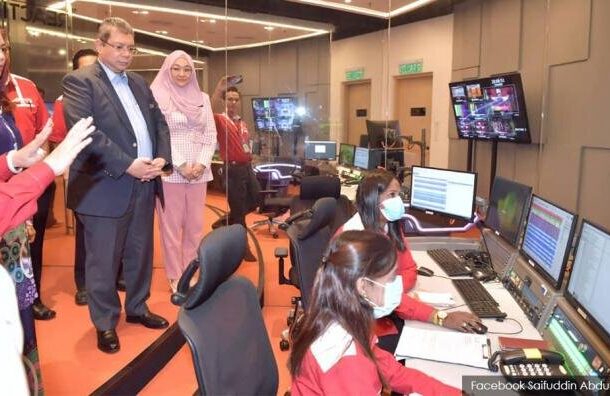
The Centre for Independent Journalism (CIJ) has urged caution that the new channel launched by national broadcasting station RTM against “fake news” not be used to “spread state propaganda”.
CIJ executive director Wathshlah Naidu said it was concerned the initiative may result in a “tactical attempt” to crack down on legitimate speech, dissent, differences of opinion and disproportionately restrict expression.
“Such an initiative, we hope, is meant to ensure that timely dissemination and access to information is guaranteed to the public and available in multiple languages, besides promoting fact-finding initiatives and ethical reporting.
“However, we have seen a global practice within controlled regimes where the government is seen to use state media to censor content which it deems unfavourable or critical of them, leading to high regulation of any programming,” Wathshlah (below) said in a statement.
This is especially so after Communications and Multimedia Minister Saifuddin Abdullah said the new multilingual channel Saluran Berita RTM would allow the public to “distinguish between true and false news.”
Saifuddin said this when launching the 24-hour Saluran Berita RTM yesterday, which is aimed at countering misinformation in the public sphere.

However, CIJ cited an April 10 tweet by the Information Department under Saifuddin’s ministry which featured an alert from Cyber Security Malaysia, listing out six categories of information classified as fake news and its effects.
Among which, it listed information that “instils hatred towards the government and leaders” as fake news that could “lead to distrust of the ruling government”, and information which “damages the dignity of an individual and reputation of an organisation and country” could “cause confusion, trigger unrest, and negatively affect a person, an organisation or the country’s reputation as a whole”.
As such, the CIJ called on the Perikatan Nasional government to ensure the channel:
1. does not become the proxy of the state for propaganda purposes aimed at promoting the ruling regime in a favourable light and vilifying any opposing or dissenting positions;
2. is not used to become the sole arbiters of truth by arbitrarily deciding what information can and cannot be in the public domain, and what “fake news” is;
3. focuses on education and dissemination of public information countering the alleged “fake news” through efficient, unencumbered and broad channels of ideas and information that is balanced and from various sources apart from the government, such as experts and civil society organisations, to facilitate public debates and enable the forming of informed opinions, and;
4. meets established norms and global content code standards with its contents.
It added that the government should move forward with the establishment of the Malaysian Media Council as a transparent and independent self-regulatory body of the industry.
The media council pro-tem committee was set up under the former Pakatan Harapan government of which Saifuddin had been a part of prior to its collapse, fulfilling a promise as stated in the Pakatan Harapan manifesto to set up a media council.
The committee, headed by Malaysiakini CEO Premesh Chandran, had worked on a draft bill since then.
The council’s future is uncertain after the installation of the new federal government.
Source: Malaysiakini